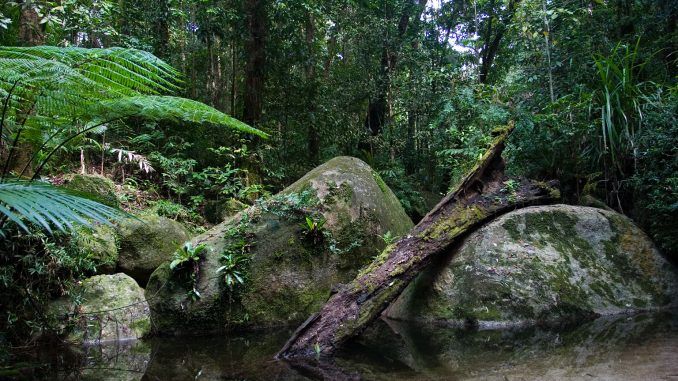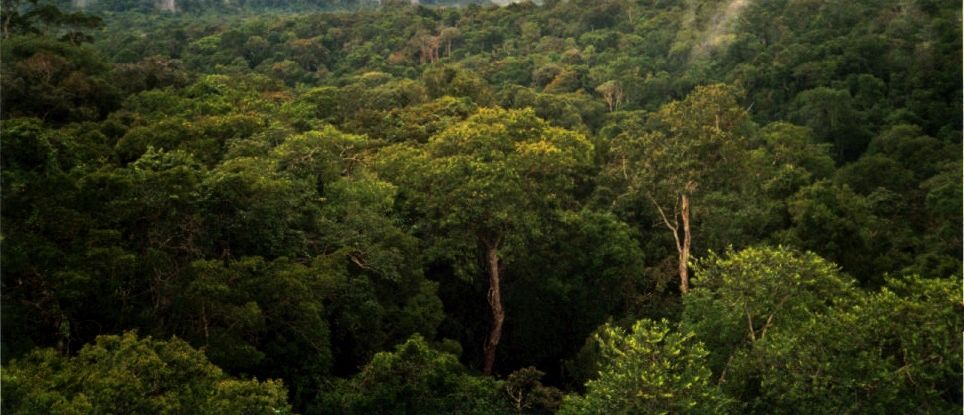
The Earth’s wilderness areas will be completely eliminated by the year 2100, according to a disturbing new study.
Despite the importance of wilderness ecosystems on biodiversity, climate, food, shelter, medicine and other vital ecological and evolutionary processes, they are being destroyed at a dangerously rapid rate.
It takes 1,000 years to repopulate a newly planted forest with tree species and it took earth one million years to create a rainforest.
Scientists say that by the end of this century all life on the planet will be at risk of extinction as all wilderness land will be occupied by humans and their corporations.

BYPASS THE CENSORS
Sign up to get unfiltered news delivered straight to your inbox.
You can unsubscribe any time. By subscribing you agree to our Terms of Use
According to a report by Underground Reporter:
A wilderness twice the size of Alaska has been demolished by modern day practices in less than two decades. That’s 3.3 million kilometers, or a tenth of the world’s entire uncultivated land — simply gone.
A new study published in the journal Current Biology suggests that by the year 2100, all of our wilderness could be lost due to clear cutting, conventional agriculture, mining, European colonization, logging operations, animal grazing, corporate polluting, and other dastardly deeds carried out by the unconscionably daft among us.
Rainforests are already rare. They only cover 7 percent of the planet to begin with, but more than HALF of the earth’s plants and animals are endemic to this type of wilderness. Many land-based mammals that are on the red list of endangered species also reside here. More than 50,000 species are being lost every year at the rate we are destroying our wilderness.
These forests also create more than 20 percent of all our oxygen and provide innumerable medicinal plants, almost all of which have been co-opted by the pharmaceutical industry. Nearly 90 percent of all drugs are created from plants that come from the wild.
Wilderness areas protect biodiversity on this planet and contribute to our own health and sovereignty. The study’s lead author, Dr. James Watson of the University of Queensland in Australia and the Wildlife Conservation Society in New York, surmises,
“Globally important wilderness areas — despite being strongholds for endangered biodiversity, for buffering and regulating local climates, and for supporting many of the world’s most politically and economically marginalized communities — are completely ignored in environmental policy. Without any policies to protect these areas, they are falling victim to widespread development. We probably have one to two decades to turn this around. International policy mechanisms must recognize the actions needed to maintain wilderness areas before it is too late.”
The study’s authors suggest that global action is needed to protect forests from the threat of industrial forestry, oil and gas exploration, human-induced fires, and rapid climate change.
This kind of loss is usually considered irreversible. The world’s most ancient efforts to re-grow rainforestssuggest that reforesting the planet isn’t as easy as some might think.
One rainforest which was artificially seeded in Malaysia nearly 90 years ago shows that there is much more involved in building this ecosystem than just tossing a few plants into the soil.
Bill Laurance, Australian laureate and expert on tropical forests at James Cook University in Cairns, Queensland explains:
“This is certainly one of the oldest rainforest regeneration experiments around—if not the oldest—and it’s really big in scale. That’s important because it means you can limit spillover effects from nearby old-growth rainforest. These can create the misleading impression that more species survive in the regenerating forest than is actually the case.”
Not nearly the amount of biodiversity and regeneration has been observed in the 90-year old rainforest as one would hope. Researchers say it could take 1,000 years to have as many tree species as the original forests which this experiment was meant to replace.
Many of the rainforests and truly wild places that remain on the planet today took more than a million years to evolve. Perhaps we could slow our rampant destruction of such a precious part of the earth.



